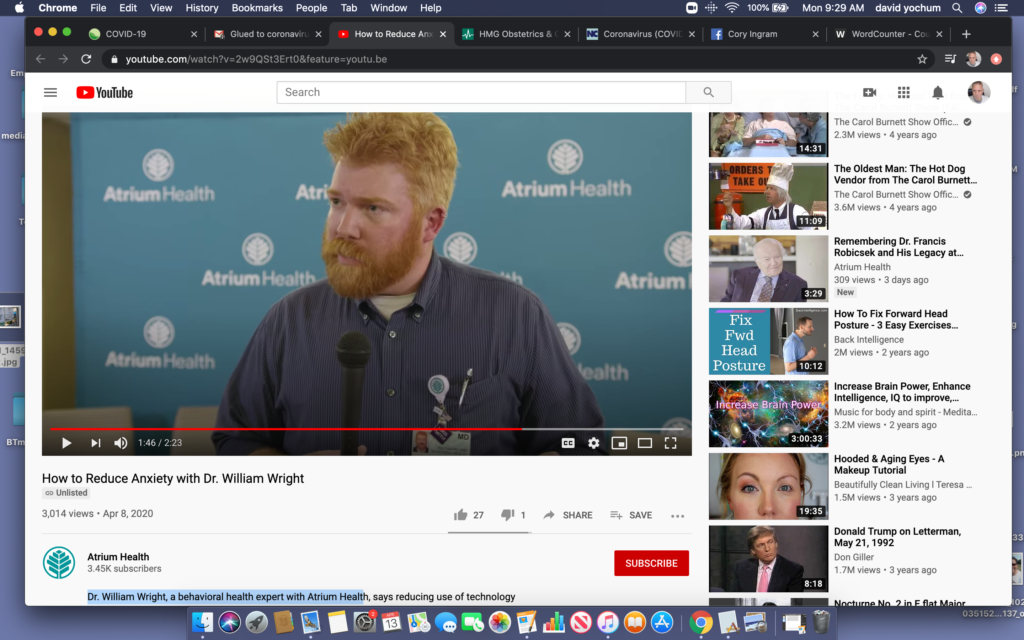
DR WILLIAM WRIGHT IS A BEHAVIORAL HEALTH SPECIALIST AT ATRIUM
April 13. UPDATED 11:30 am. By Dave Yochum. If you’re not feeling anxious about the future, you’re not paying attention. North Carolina has 20 ongoing outbreaks of COVID-19 in congregate living situations, like nursing homes and residential care facilities.
Statewide there are 4,520 COVID-19 diagnoses, and 81 dead, according to the NC Dept. of Health & Human Services.
NEW: At 11:30 am the NCDHHS reports a total of 4,816 cases and 86 dead.
There were 2,093 cases as of April 3.
In Mecklenburg County alone, there are 951 diagnosed cases and 12 related deaths. With four days left until the projected peak for COVID-19 cases in North Carolina, the Institute for Health Metrics & Evaluation is forecasting Mecklenburg will peak at 21 deaths per day, dropping to one or two deaths per day by approximately May 3 or 4.
The anxiety is real.
Dr. William Wright, a behavioral health expert with Atrium Health, says it’s normal to feel anxious. He recommends taking time to disconnect from technology and spend time with family. Reconnect with habits like painting, reading, writing, walking with your children.
Think about what’s most important to you.
If feelings of sadness and loss of control become overwhelming, take a break. If you would like to talk to someone 24-7, call the Atrium Health Behavioral Health Help Line at 704-444-2400, and speak to a licensed professional.
There are man things you can do today to help improve your mental health amid COVID-19 outbreak. The University of Alabama at Birmingham has this advice:
Help someone else
Helping someone else is a great way to feel more empowered about the impact you have on your day-to-day life. Virtually reach out to struggling co-workers or others in the community.
Practice mindfulness
Mindfulness means being fully present in the moment. Don’t get caught up in things that have happened in the past or in the future while missing out on living in the present. Check out mindfulness https://www.resilientoption.com/ , which is offering free unlimited access to its online program.
Read a book
Whether you choose to read a positive book, a murder mystery or even a manual, reading still has proven health benefits. According to Scholastic, regular reading can decrease your stress levels by up to 68 percent and can lengthen your life by up to two years.
Watch a positive movie or television show
Watching a movie can provide relaxation, emotional relief and laughter.
Stay socially connected
Use your phone to call friends and family, play games online, do a puzzle, cook with family.
Be aware of your news intake
Constantly listening to news and/or cable talk shows can increase your anxiety during an outbreak or disaster. Stay updated, but limiting your news intake will help you stay more in the moment and lower your stress levels. This is particularly important for parents with young children who can be frightened.



